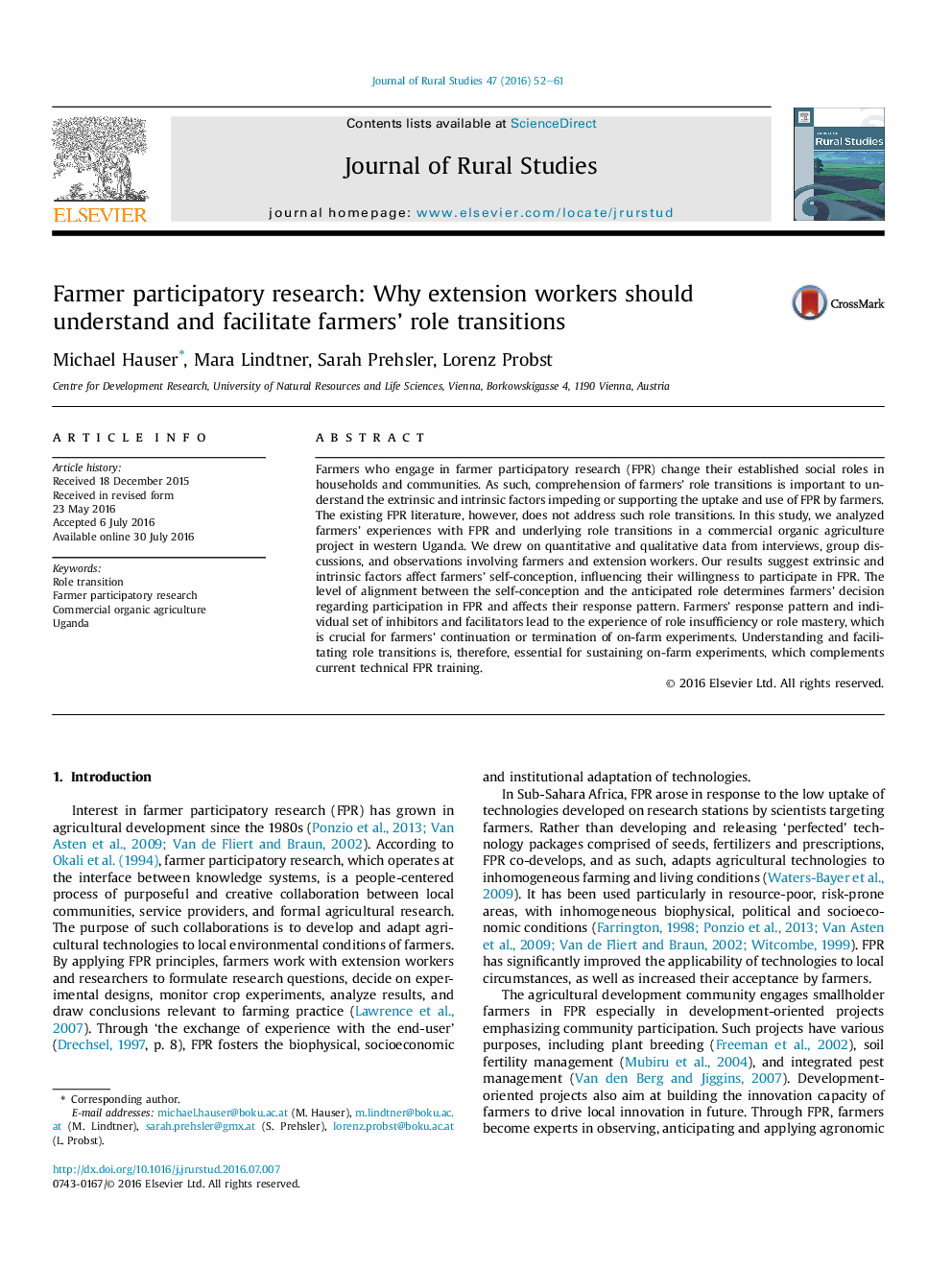| Article ID | Journal | Published Year | Pages | File Type |
|---|---|---|---|---|
| 6460225 | Journal of Rural Studies | 2016 | 10 Pages |
â¢Applies role transition theory to farmer participatory research.â¢Analyzes extrinsic and intrinsic factors influencing farmers' role transitions.â¢Suggests extension workers to understand and facilitate farmers' role transitions.â¢Provides a process model for role transitions in farmer participatory research.
Farmers who engage in farmer participatory research (FPR) change their established social roles in households and communities. As such, comprehension of farmers' role transitions is important to understand the extrinsic and intrinsic factors impeding or supporting the uptake and use of FPR by farmers. The existing FPR literature, however, does not address such role transitions. In this study, we analyzed farmers' experiences with FPR and underlying role transitions in a commercial organic agriculture project in western Uganda. We drew on quantitative and qualitative data from interviews, group discussions, and observations involving farmers and extension workers. Our results suggest extrinsic and intrinsic factors affect farmers' self-conception, influencing their willingness to participate in FPR. The level of alignment between the self-conception and the anticipated role determines farmers' decision regarding participation in FPR and affects their response pattern. Farmers' response pattern and individual set of inhibitors and facilitators lead to the experience of role insufficiency or role mastery, which is crucial for farmers' continuation or termination of on-farm experiments. Understanding and facilitating role transitions is, therefore, essential for sustaining on-farm experiments, which complements current technical FPR training.
Graphical abstractDownload full-size image
